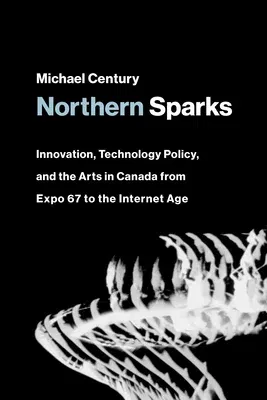An "episode of light" in Canada sparked by Expo 67 when new art forms,
innovative technologies, and novel institutional and policy frameworks
emerged together.
Understanding how experimental art catalyzes technological innovation is
often prized yet typically reduced to the magic formula of "creativity."
In Northern Sparks, Michael Century emphasizes the role of policy and
institutions by showing how novel art forms and media technologies in
Canada emerged during a period of political and social reinvention,
starting in the 1960s with the energies unleashed by Expo 67. Debunking
conventional wisdom, Century reclaims innovation from both its
present-day devotees and detractors by revealing how experimental
artists critically challenge as well as discover and extend the
capacities of new technologies.
Century offers a series of detailed cross-media case studies that
illustrate the cross-fertilization of art, technology, and policy. These
cases span animation, music, sound art and acoustic ecology, cybernetic
cinema, interactive installation art, virtual reality,
telecommunications art, software applications, and the emergent
metadiscipline of human-computer interaction. They include Norman
McLaren's "proto-computational" film animations; projects in which the
computer itself became an agent, as in computer-aided musical
composition and choreography; an ill-fated government foray into
interactive networking, the videotext system Telidon; and the beginnings
of virtual reality at the Banff Centre. Century shows how Canadian
artists approached new media technologies as malleable creative
materials, while Canada undertook a political reinvention alongside its
centennial celebrations. Northern Sparks offers a uniquely nuanced
account of innovation in art and technology illuminated by critical
policy analysis.

